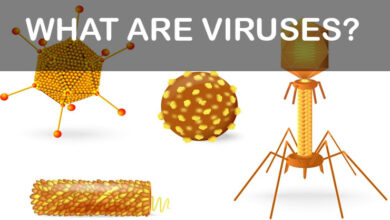Have you ever wondered if your body is trying to tell you something? Beyond obvious symptoms, your physique holds a treasure trove of subtle clues about your overall health. From the tips of your hair to the color of your nails, these often-overlooked indicators can offer surprising insights into your well-being. Understanding these silent signals empowers you to take proactive steps towards a healthier life. This article explores fascinating ways your body communicates its health status, even when you’re unaware.
The Secrets in Your Skin: Beyond Just a Complexion

Your skin, the largest organ, is a remarkable storyteller. Its appearance can reflect much more than just sun exposure or aging.
- Persistent Acne in Specific Areas: While a common teenage woe, persistent acne in adults, particularly around the jawline, can sometimes indicate hormonal imbalances. Acne on the forehead might point to digestive issues or stress.
- Dry Patches and Eczema: Extremely dry, flaky skin, or the presence of eczema, could be a sign of dehydration, nutrient deficiencies (like essential fatty acids), or even a compromised skin barrier function.
- Yellowish or Pale Skin Tone: A yellowish tint to the skin and whites of the eyes (jaundice) can signal liver problems, while unusually pale skin might suggest anemia (low red blood cell count).
- Sudden Moles or Changes in Existing Ones: While many moles are harmless, any new, irregularly shaped, or rapidly changing moles should always be checked by a dermatologist, as they could be a sign of skin cancer.
Your Nails: Tiny Windows to Your Internal Health
Often seen as just canvases for polish, your fingernails and toenails are surprisingly accurate indicators of your internal health.
- Brittle Nails: Nails that frequently break, peel, or are unusually soft might indicate a lack of essential vitamins and minerals, particularly biotin, iron, or zinc. They could also be a sign of thyroid issues.
- White Spots or Lines: Small white spots (leukonychia) are often harmless and due to minor trauma, but widespread white lines (Mee’s lines) can sometimes be linked to kidney disease, liver problems, or arsenic poisoning.
- Vertical Ridges: Common with aging, prominent vertical ridges are usually normal. However, if they appear suddenly or are accompanied by other symptoms, they might warrant a closer look by a doctor.
- Spoon-Shaped Nails (Koilonychia): Nails that curve inward like a spoon are a classic sign of iron deficiency anemia.
- Clubbing of Nails: When fingertips enlarge and the nails curve around them, it’s known as “clubbing” and can be a sign of serious underlying lung or heart conditions.
What Your Hair Reveals: More Than Just Good Looks

Beyond styling, the condition of your hair can offer surprising clues about your health.
- Excessive Hair Loss: While shedding some hair daily is normal, significant or sudden hair loss can be a sign of stress, hormonal imbalances (like thyroid issues), iron deficiency, or even autoimmune conditions.
- Brittle or Dry Hair: Hair that feels excessively dry, coarse, or brittle, even with good conditioning, might suggest a lack of protein, essential fatty acids, or thyroid problems.
- Premature Graying: While genetics play a big role, premature graying in some cases has been linked to vitamin B12 deficiency or severe stress.
Your Eyes: The Reflective Pools of Your Health
More than just windows to the soul, your eyes can reflect numerous health conditions.
- Yellowish Whites of the Eyes (Sclera): As mentioned with skin, yellowing sclera is a strong indicator of jaundice, suggesting liver or gallbladder issues.
- Red or Bloodshot Eyes: While often due to fatigue or irritation, persistently red eyes can be a symptom of allergies, infections, or even underlying inflammatory conditions.
- Bags Under Your Eyes: While lack of sleep is a common culprit, chronic under-eye bags or dark circles can sometimes be related to allergies, dehydration, or kidney function.
- Stye or Chalazion: While minor, recurrent styes (inflamed glands on the eyelid) can sometimes be more common in individuals with diabetes or compromised immune systems.
Oral Health: A Gateway to Your Overall Well-being
Your mouth is not just for eating and speaking; it’s a critical barometer of your health.
- Bleeding Gums: Often a sign of gingivitis (gum inflammation), persistent bleeding gums can also be linked to more serious systemic conditions like diabetes or certain blood disorders.
- Persistent Bad Breath (Halitosis): Beyond poor oral hygiene, chronic bad breath can be a symptom of digestive issues, sinus problems, or even kidney or liver disease.
- Cracked Lips at the Corners (Angular Cheilitis): This can be a sign of iron or B vitamin deficiencies, particularly riboflavin.
- Tongue Appearance: A very pale tongue might suggest anemia, while a very red, swollen tongue could indicate a B vitamin deficiency.
Beyond the Visible: How Your Body’s Processes Speak

Even internal processes can manifest externally.
- Persistent Fatigue (Beyond Lack of Sleep): While easily dismissed, chronic, unexplained fatigue can be a symptom of numerous underlying conditions, including thyroid disorders, anemia, sleep apnea, or chronic fatigue syndrome.
- Unexplained Weight Changes: Significant and sudden weight gain or loss without changes in diet or activity can signal hormonal imbalances, metabolic issues, or other serious health problems.
- Frequent Headaches: While common, persistent and severe headaches can be a symptom of dehydration, stress, vision problems, or even more serious neurological conditions.
Taking Action: Listening to Your Body’s Whispers
It’s crucial to remember that this article is for informational purposes only and not a substitute for professional medical advice. If you1 notice any persistent or concerning changes in your body, consult a healthcare professional. Your body is constantly sending you messages; learning to interpret these subtle cues can be a powerful tool for maintaining and improving your health. By paying attention to these surprising indicators, you can empower yourself to live a healthier, more informed life.




